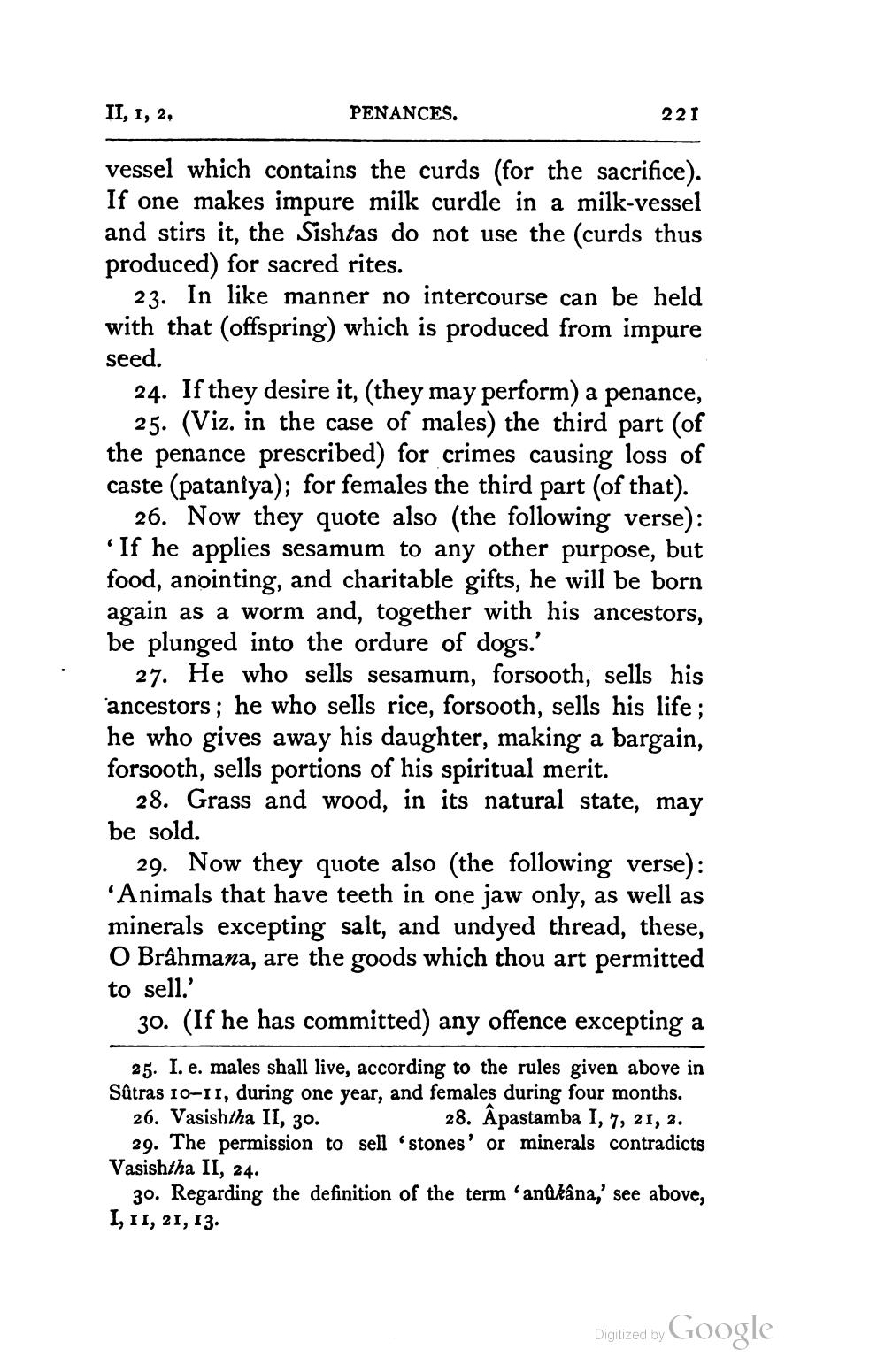________________
II, 1, 2,
PENANCES.
221
vessel which contains the curds (for the sacrifice). If one makes impure milk curdle in a milk-vessel and stirs it, the Sishtas do not use the (curds thus produced) for sacred rites.
23. In like manner no intercourse can be held with that (offspring) which is produced from impure seed.
24. If they desire it, (they may perform) a penance,
25. (Viz. in the case of males) the third part (of the penance prescribed) for crimes causing loss of caste (pataniya); for females the third part (of that).
26. Now they quote also (the following verse): "If he applies sesamum to any other purpose, but food, anointing, and charitable gifts, he will be born again as a worm and, together with his ancestors, be plunged into the ordure of dogs.'
27. He who sells sesamum, forsooth, sells his ancestors; he who sells rice, forsooth, sells his life ; he who gives away his daughter, making a bargain, forsooth, sells portions of his spiritual merit.
28. Grass and wood, in its natural state, may be sold.
29. Now they quote also (the following verse): 'Animals that have teeth in one jaw only, as well as minerals excepting salt, and undyed thread, these, O Brahmana, are the goods which thou art permitted to sell.'
30. (If he has committed) any offence excepting a 25. I. e. males shall live, according to the rules given above in Sûtras 10-11, during one year, and females during four months. 26. Vasishtha II, 30.
28. Âpastamba I, 7, 21, 2. 29. The permission to sell stones' or minerals contradicts Vasishtha II, 24.
30. Regarding the definition of the term 'anûkâna,' see above, I, 11, 21, 13.
Digitized by Google




